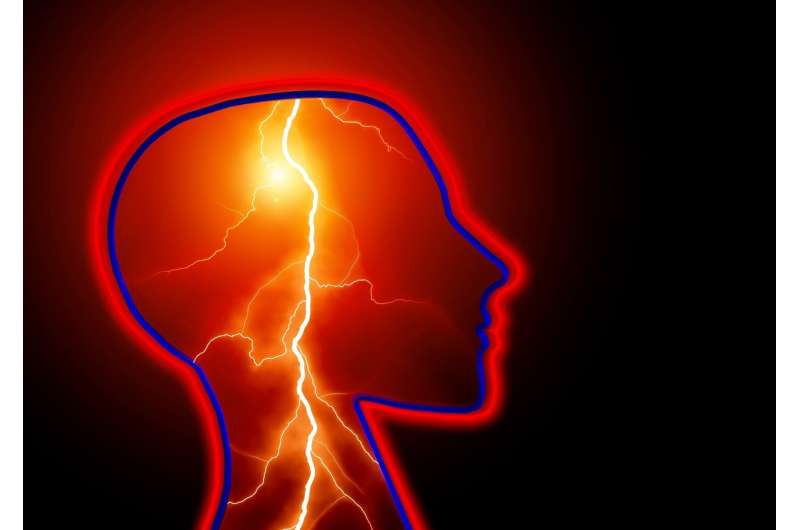This article has been reviewed according to Science X's editorial process and policies. Editors have highlighted the following attributes while ensuring the content's credibility:
fact-checked
peer-reviewed publication
trusted source
proofread
Your education and income level may affect your survival, recovery from stroke

People with low education and income levels may have a 10% increased risk of death or being dependent on others to complete daily tasks three months after a stroke compared to people with high education and income levels, according to new research published in Neurology. The study does not prove that low education and income cause worse outcomes after stroke. It only shows an association.
"Compared to people with high socioeconomic status, people with low socioeconomic status have been shown in previous research to have more cardiovascular risk factors for stroke and less access to quality stroke care," said study author Anita Lindmark, Ph.D., of Umeå University in Sweden.
"Our study sought to determine if socioeconomic status plays a role after stroke. Not only did we find an increased risk of death and dependency on others for those with low education and income levels, we also found that if interventions were put in place to reduce disparities, it could save lives."
For the study, researchers identified 25,846 people in the Swedish Stroke Register who had a stroke during a two-year period, and who prior to their stroke were able to live independently with no assistance with daily activities such as walking, dressing, bathing or eating. Three months after stroke, 6,798 people died or needed assistance with daily activities.
Researchers then identified income and education levels for participants. They divided education into three levels: primary school, high school and college. They defined income as the participant's portion of their family's disposable income the year before the stroke.
Using these two measures, researchers divided participants into three socioeconomic groups. Low socioeconomic status was defined as having only a primary school education and a disposable income in the lowest group. High socioeconomic status was having a college education and a disposable income in the highest group. Everyone in between was placed in the middle group.
Researchers then determined the risk of death and being dependent on others to complete daily tasks at three months after stroke. Of 4,134 people in the low group, 1,619 people, or 39%, died or were dependent on others. Of 3,347 people in the high group, 591 people, or 18%, died or were dependent on others.
After adjusting for sex and age, researchers found people in the low socioeconomic group had a 5% increased absolute risk of death and dependency on others compared to people in the middle group, and a 10% increased absolute risk compared to people in the high socioeconomic group.
Researchers then conducted an analysis to examine how much risk would remain if those in the low group had the same co-occurring diseases, stroke severity and stroke treatments, such as blood thinners and surgery, as the people in the high group. Through this analysis, researchers found that 40% of the increased risk was removed, resulting in an overall 3% increased risk for people in the low group when compared to middle, and a 6% increased risk when compared to the high group.
"Our research suggests that it could be possible to save 40 out of every 1,000 patients in the low socioeconomic group from dying or becoming dependent on others if we could equalize differences between socioeconomic groups," said Lindmark. "Much of this reduction in risk for people with low socioeconomic status could be accomplished by interventions that could reduce stroke severity."
One limitation of the study was incomplete information on the medical care participants received after their stroke, as well as whether they took all medications. There was also limited information on other social determinants of health such as occupation and the neighborhoods where participants lived.
More information: Neurology (2023).



















